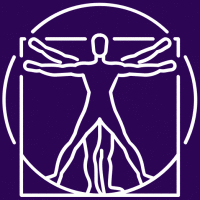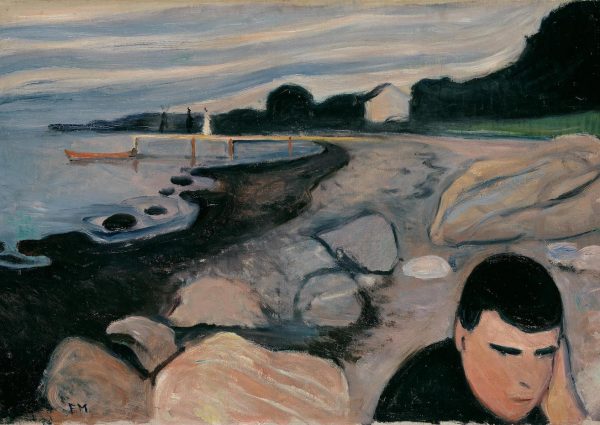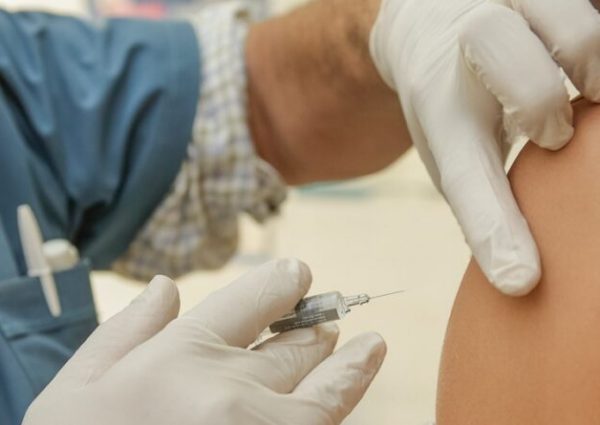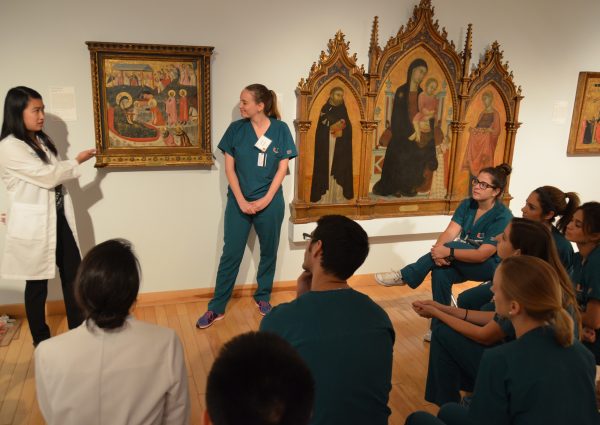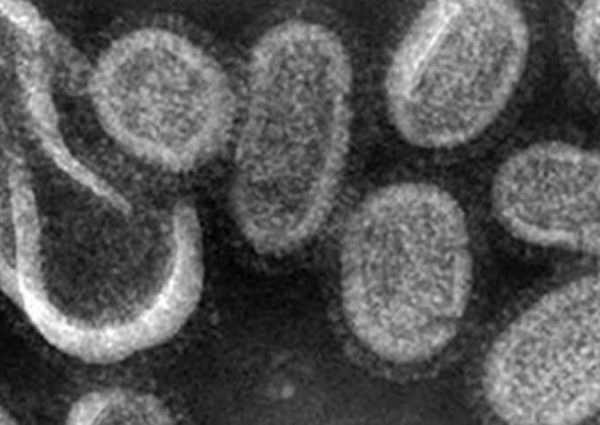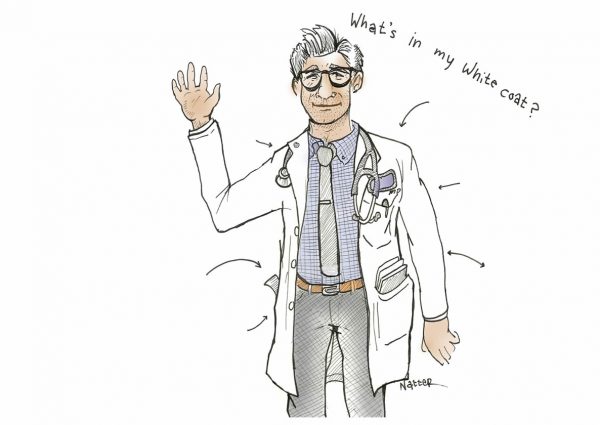INSTITUTION: Indiana University-Bloomington
INSTRUCTOR: John Woodcock (e-mail: woodcock@indiana.edu)
ENROLLMENT: Undergraduate
SEMESTER: Spring 2002
OVERVIEW OF COURSE: In the last century or so, advances in medical science and technology have
powerfully affected both our material world and our inner world, including the images we have of
ourselves and of humanity. This section of Introduction to Writing and the Study of Literature is designed to develop your appreciation of the relations between medicine, society, and individual selfhood through reading, discussing, and writing about a variety of works by authors and film directors who were interested in the personal and cultural aspects of medicine.
Our discussions will move from the concrete situations presented in the readings to consideration of the personal, social, and ethical questions these experiences raise for patients, for medical professionals, and for serious observers of culture. Some likely areas of discussion: the personal and social meanings of illness and healing, images of the physician, varieties of patient-physician relationships, and patients’ and physicians’ rights and responsibilities.
COURSE OBJECTIVES: What is the best doctor-patient relationship? Does illness change the way you think? How do medical caregivers cope? Is medicine today gender-neutral? What are the issues surrounding cosmetic surgery? Is it good or bad to design a baby? What are the politics of public health? These are the kinds of questions we will face in this course devoted to exploring the human side of medicine today.
In our discussions of we will look not so much for final answers (about which there is room for intelligent people to disagree) as for an informed and useful sense of what such discussion involves and of how humanities texts and critical ideas can contribute to it. We will spend a good deal of time on writing, on the nature and structure of stories, and on the process of interpretation. Besides having a richer sense of medicine, you should finish the course with improved analytical, writing, and discussion skills, and with a clearer critical understanding of written texts, skills that should make your work in other courses easier, more productive, and more rewarding.
WRITTEN WORK: This course is seriously dedicated to the study of the writing process (for which you get one more than the usual number of credits). You will write frequently, at varying length and with varying formality. We expect that written work will deal seriously with course ideas and that it will show the benefits of revision and proofreading.
QUIZZES: There will be about ten unannounced weekly quizzes in lecture to check on your understanding of the lectures and your use of the course’s basic critical terms and techniques. There will be no makeups, but all get to drop their two lowest quiz grades of the semester. Additionally, to pass the course, you will have to get two scores of 18 or higher (out of 20) on a series of mechanics and grammar quizzes that will be given in section (these quizzes can be taken many times if necessary–which will be explained in section).
GRADING: Written work will be graded by your section instructor in consultation with the lecturer. Everyone will write four formal papers of increasing length and complexity, as well as frequent less formal responses to course materials. The four papers will account for 60% of your final grade, the midterm 15%, the lecture quizzes 10%, and section activities (many of them involving writing) the remaining 15%.
REQUIRED READINGS AND FILMS: The following books are required for the course and are available at the IU Bookstore and TIS, which is located near the intersection of Jordan and 3rd St.: Henrik Ibsen, An Enemy of the People (you must have the adaptation by Arthur Miller); Susanna Kaysen, Girl, Interrupted; and Joyce Wadler, My Breast. For help with style, grammar, and usage, if you do not already have a college-level writing handbook, you should purchase Diana Hacker’s A Pocket Style Manual. We will see the following feature films in evening showings (those unable to attend may see the films independently): Outbreak, Miss Evers’ Boys, One Flew Over the Cuckoo’s Nest, and Bringing Out the Dead. Besides the above, there is a required packet of duplicated readings available at both bookstores.
COURSE EXPECTATIONS: Regular attendance is expected in lecture and may be required in section. (Absences are limited because much of the learning in the course cannot be reconstructed from a classmate’s notes.) We also expect you to develop facility in working with Oncourse, IU’s online course software.
Reading for this course will involve an active and critical investigation of texts, which is more than a passive scanning of the pages. Before each class meeting, you should read the assigned texts carefully, make marginal or other notes, including any questions you may have, and be ready to discuss them and to write intelligently on them in lecture or in section. Before you write formally on a work, we assume that you will reread or thoroughly review the relevant texts.
We encourage you to study in groups, but remember that the writing you do for this course must be your own or explicitly acknowledged to be influenced by others, whether the others are published or not. Be sure you understand the basics of documentation (by which you acknowledge the influence of others in your work) and that you have read and understood your section’s policy on plagiarism.
If you miss a class, it is your responsibility to catch up with that day’s lecture, section, handouts, and assignments. Incompletes will be awarded only under unusual circumstances. (Some of the above items will be expanded in future handouts in lecture and in section.)
Schedule of lectures and major assignments
UNIT ONE: INTRODUCTION AND OVERVIEW
| Tues 1/8 | Introduction to the course |
| Thurs 1/10 | On interpretation |
| Tues 1/15 | How to read a story: Daniel Keyes, “Flowers for Algernon” |
| Thurs 1/17 | On writing |
| Tues 1/22 | General and Medical Ethics |
| Literary interpretation response due | |
| Thurs 1/24 | Henrik Ibsen, An Enemy of the People, Act One |
| Tues 1/29 | Ibsen, Acts Two and Three |
| tba | Showing of film: Outbreak |
| Thurs 1/31 | Discussion of film |
| Draft of Paper #1 due |
UNIT TWO: MEDICINE AND CULTURE
| Tues 2/5 | Robert J. Lifton, “Sterilization and the Nazi Medical Vision” |
| tba | Showing of film: Miss Evers’ Boys |
| Thurs 2/7 | Discussion of film |
| Paper #1 (final draft) due | |
| Tues 2/12 | Barbara Ehrenreich & Deirdre English, “The Sexual Politics of Sickness” |
| Thurs 2/14 | Charlotte Perkins Gilman, “The Yellow Wallpaper” (to be made available) |
| Tues 2/19 | Midterm review |
| Thurs 2/21 | Midterm exam (BH 109) |
UNIT THREE: THE PATIENT’S EXPERIENCE
| Tues 2/26 | Joyce Wadler, My Breast, I |
| Thurs 2/28 | Wadler, My Breast, II |
| Marilyn Yalom, “Introduction: Changing Meanings” (from A History of the Breast) | |
| Tues 3/5 | On the varieties of patients’ experiences |
| Paper #2 due | |
| Thurs 3/7 | Oliver Sacks, “Rebecca” |
| 3/12-3/14 | SPRING BREAK |
| Tues 3/19 | Susanna Kaysen, Girl, Interrupted, I |
| Thurs 3/21 | Kaysen, Girl, Interrupted, II |
| tba | Showing of film: One Flew Over the Cuckoo’s Nest |
| Tues 3/26 | Discussion of film |
| Thurs 3/28 | Norman Cousins, “Anatomy of an Illness as Perceived by the Patient” |
| Tues 4/2 | Jerome Groopman, “The Last Deal” |
UNIT FOUR: THE DOCTOR’S EXPERIENCE
| Thurs 4/4 | A. C. Cronin, “Doctor, I Can’t . . . I Won’t Have a Child” |
| William Carlos Williams, “The Use of Force” | |
| Tues 4/9 | Robert Seaver, “Myocardial Infarction” |
| Short selections from JAMA’s “A Piece of My Mind” | |
| Thurs 4/11 | On the varieties of doctors’ experiences |
| Paper #3 Due |
EPILOGUE: SURVIVING MEDICAL CHALLENGES
| Tues 4/16 | Lorrie Moore, “People Like That Are the Only People Here” |
| tba | Showing of film: Bringing Out the Dead |
| Thurs 4/18 | Discussion of film; lecture evaluations |
| 4/23-4/25 | Work on final papers (meet in sections only) |
| 4/29-5/4 | Exam week (no final exam) |
| Paper #4 due, date tba in section |
